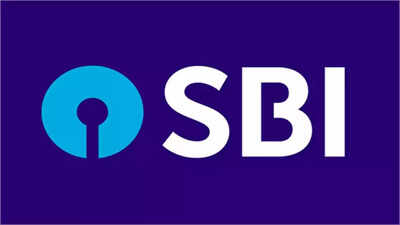How an MBA can help you land high-paying HR jobs in the US

In the evolving landscape of global business, Human Resources (HR) is no longer confined to recruitment and paperwork. Today, HR leaders are strategic architects of organisational culture, performance, and transformation. And for those eyeing a leadership role in this space, especially in the United States, an MBA with a focus on Human Resources or organisational leadership could be a significant career accelerator.Here’s a closer look at how an MBA can reshape your professional path in HR, from skill development and salary prospects to long-term influence and credibility.
From hiring to strategy: A shift in the HR mandate
The expectations from HR professionals have changed dramatically. US-based organisations now expect their HR leaders to understand the language of business, manage talent globally, respond to workforce trends with data, and lead organisational change. These aren’t skills typically developed in entry-level roles or undergraduate programs.An MBA helps fill this gap. Whether you’re moving up the ladder or pivoting from another function, the degree offers training that blends strategic thinking with practical application. From managing mergers to analysing workforce data for diversity metrics, MBA graduates are better equipped to make informed decisions and influence top-level outcomes.
Access to high-growth roles across industries
An MBA in HR opens the door to leadership roles across sectors including technology, healthcare, financial services, consulting, manufacturing, and beyond. In many organisations, titles like HR Manager, Talent Acquisition Lead, Employee Experience Officer, or HR Business Partner are reserved for those with advanced education or years of experience. An MBA can accelerate that timeline.With growing specialisation in fields like people analytics, global HR operations, and compensation design, MBA holders often find themselves leading niche projects that directly impact profitability and performance. Some graduates even move into roles intersecting with legal compliance, digital transformation, or ESG (Environmental, Social, and Governance) strategy, further expanding their influence.
Business fluency: A new HR imperative
What truly distinguishes an MBA-trained HR professional is business fluency. In addition to learning core HR practices, you gain insight into finance, operations, marketing, and leadership strategy. This cross-functional understanding enables HR professionals to sit at the table with senior leadership—not just as facilitators of culture, but as architects of business success.You’re trained to interpret organisational data, forecast workforce needs, and contribute to decision-making at the highest levels. You also gain the skills to manage change, something every company faces, whether through expansion, restructuring, or external disruption.
Salaries, stability, and growth
The financial benefits of an MBA in HR are tangible. According to US labor data and market surveys, HR professionals with MBAs can earn median salaries upwards of $100,000 annually. Senior HR managers, directors, and specialists in areas like compensation or talent development may earn significantly more, particularly in large metropolitan areas or multinational companies.Beyond the paycheck, HR remains one of the most stable career tracks in the US Every organisation, public or private, requires skilled people managers. And in the wake of remote work, mental health awareness, and inclusive hiring, the demand for HR leaders with both empathy and strategic acumen has only grown.
A degree that comes with a network
MBA programs in the US offer more than just academic training. They’re ecosystems of mentorship, networking, and hands-on learning. You’ll engage with professors, alumni, and guest speakers who are often industry insiders. Internship opportunities during the program can also lead directly to full-time job offers.In a competitive job market, who you know, and how well you’re prepared to engage with them can make a significant difference. MBA programs help you build those relationships and strengthen your professional visibility.
The long-term impact
For many professionals, an MBA in HR is not just about climbing the ladder—it’s about having a seat at the table where real decisions are made. It’s about influencing how companies treat their employees, how they structure learning and development, and how they create inclusive, sustainable work environments.Moreover, the degree adds credibility. Whether you’re applying for a role at a top-tier firm or presenting a strategic plan to the C-suite, an MBA often signals strategic vision, professional discipline, and leadership potential.In the US and globally, the future of work is being shaped by those who understand both people and business. An MBA in Human Resources doesn’t just give you a title—it gives you the mindset, skills, and tools to lead in a field that is central to every organisation’s success.TOI Education is on WhatsApp now. Follow us here.




